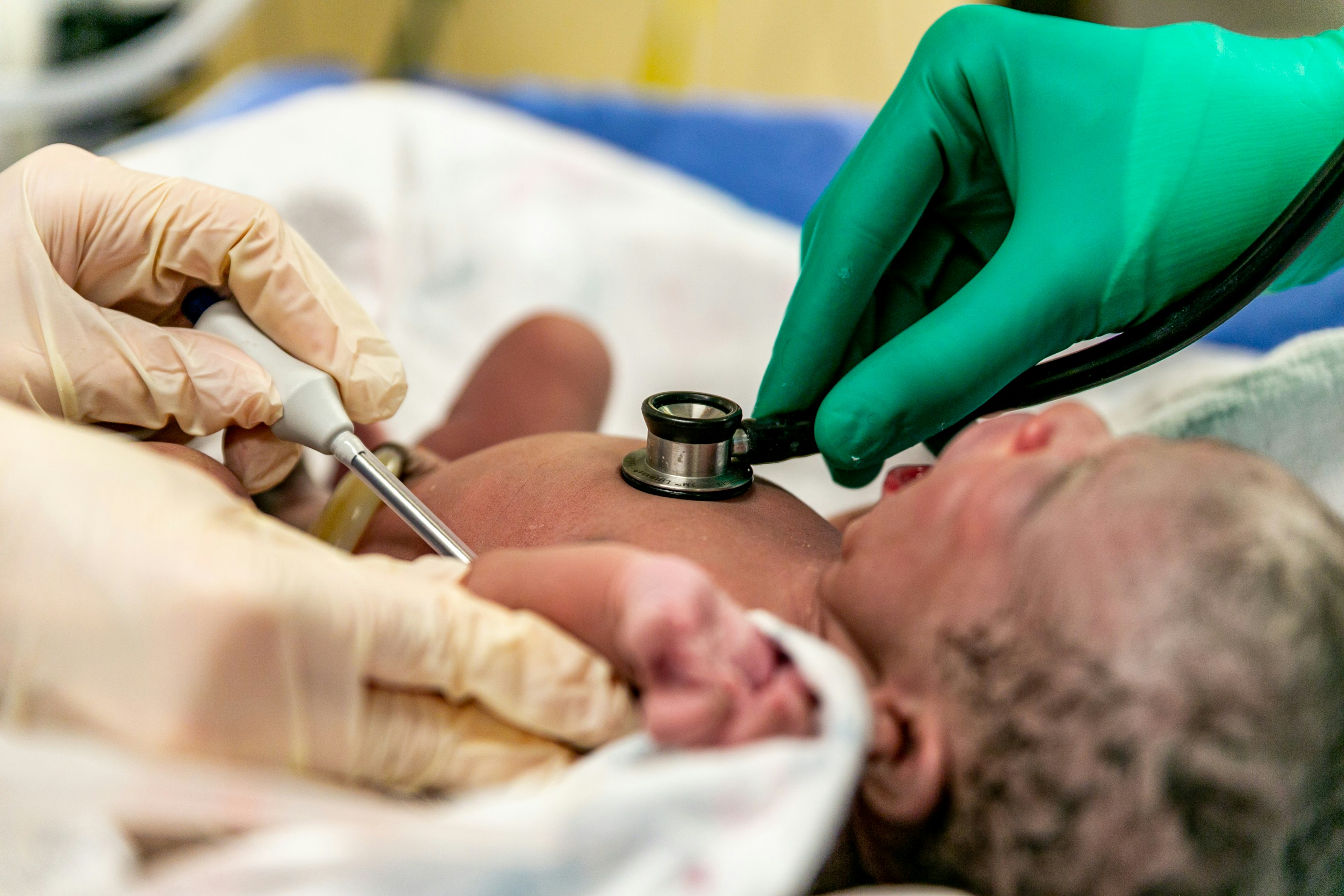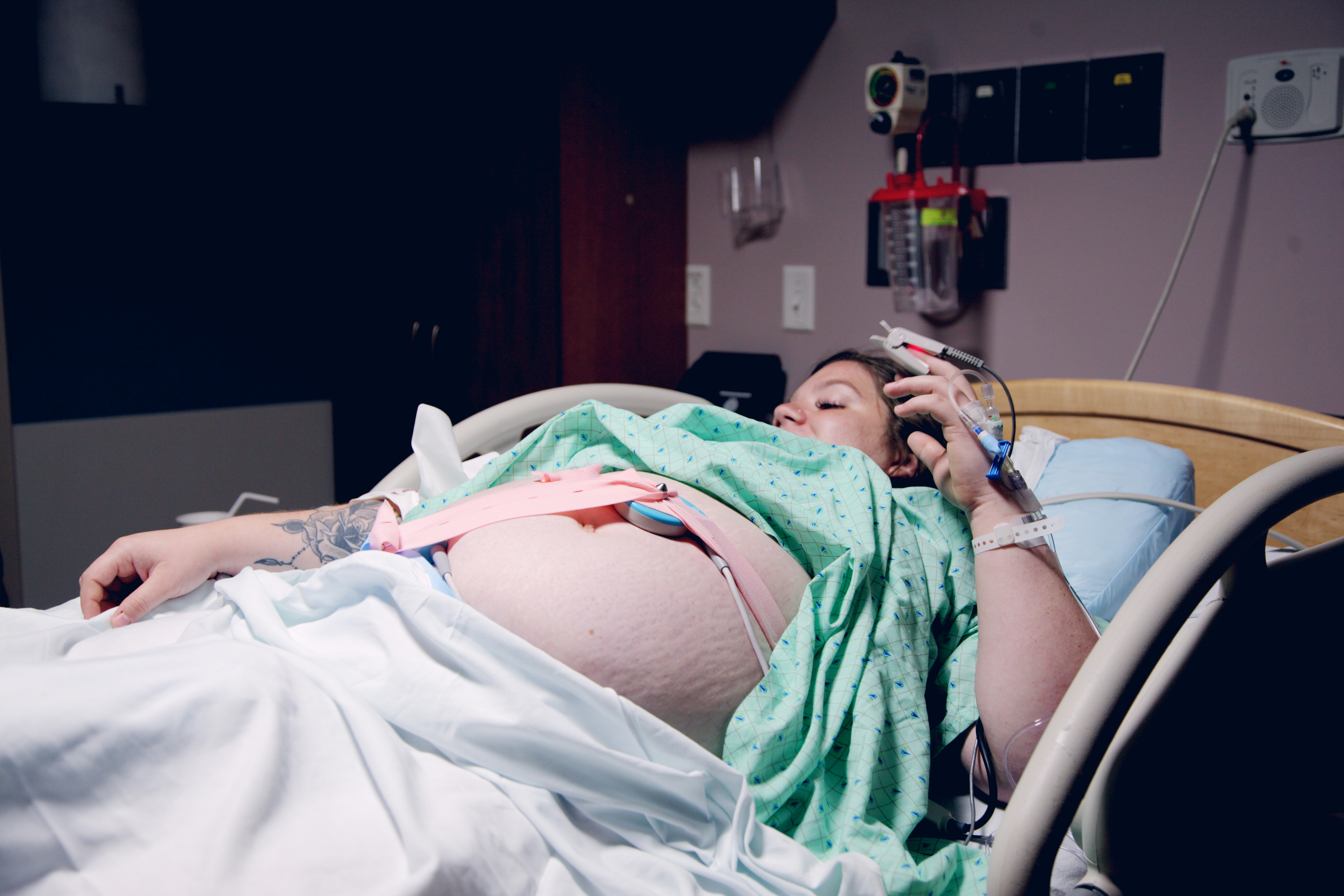Officials at Duhok Maternity Hospital explain the conditions and instructions for free cesarean sections for pregnant women, emphasizing that natural birth is better and safer for both mothers and babies.
Caesarian section is trending the in the Kurdistan Region of Iraq KRI in the last decades as mothers believe it is painless, easier and recovery period is shorter.
Dr. Jinan Nouri, an assistant professor of obstetrics and gynecology in Duhok Northern Province, expressed concern in an interview with KirkukNow about the year-on-year decline in natural birth rates. She considers this a serious matter and urges women not to insist on having children by cesarean section, though it is available for free in public hospitals but per conditions.
A field study conducted by Nouri showed that the rate of cesarean sections, up until 10 years ago, ranged between 7 to 10% of all births. However, the rate has now risen to between 35 to 40%. The cost of a cesarean section in government hospitals in the KRI, including Duhok Maternity Hospital, is 30,000 Iraqi dinars IQD (USD20). Other services are also available to mothers, including pre-operative examinations and the provision of a blood transfusion if needed.
After the procedure, doctors and health workers provide pregnant women with advice on coping with the procedure, breastfeeding, contraception, and the appropriate interval between pregnancies once their health improves.
Regarding the reasons for the increase in surgical births, Dr. Jinan emphasized, "Any pregnant woman who visits us, we advise her to choose natural birth over surgical birth. However, most of them request surgery. There are several reasons, including fear, the spread of incorrect information on social media about surgical birth being safer, and the fact that natural birth is associated with many pains and complications. None of this is true."
"In general, some women say they don't have to endure the pain, so they consider a cesarean section better than a natural birth."
Iraq still has the highest fertility rate in the region, with only 36% of couples relying on modern contraception methods, indicating a need for more accessible family planning services.
Past surveys revealed that the country’s Total Fertility Rate varied between 3.67 to 4.2 children/women. Another statistic in Iraq indicates that over 50 percent of women aged 15 to 49 do not want more children or want to space out their births.

A newborn baby checked by a doctor. Photo by Solen Feyissa for Unsplash.com
The conditions and instructions for cesarean delivery in government hospitals are determined by a committee, not based on the mother's wishes. However, in private hospitals, the choice is made by the mother, not the doctor.
"We don't perform the procedure based on the pregnant woman's request. We wait for the committee's decision. This committee meets weekly and decides on the cases requiring a cesarean section," Jinan Nouri said.
Regarding the conditions for cesarean delivery, Jinan said, "If the baby is in a breech position in the uterus, or if the mother has had two or three previous operations and has a report proving that she is unable to give birth naturally, then it is preferable to perform a cesarean section, because natural birth poses a risk to the mother's life."
"The same applies if the baby's weight increases in the mother's womb, or if the fetus's health is unstable," she added.
Iraq’s healthcare system which was once one of the most advanced in the region now is in serious crisis. There’s a shortage of drugs, buildings and the medical staff to administer it. Over the past three decades the country has been ravaged by the Iraqi-Iran war, Saddam Hussein’s invasion of Kuwait, the ousting of Saddam regime followed by sectarian violence, the war against al-Qaeda and the rise of the Islamic State in Iraq and Syria (ISIS).
The political chaos after 2003, pushed an estimated 15,000 out of 52,000 registered Iraqi doctors to leave the country. The young student doctors primarily seek training and life abroad rather than permanent state employment.
With the exception of these conditions, pregnant women are not permitted to have cesarean deliveries in government hospitals. Between 15 and 25 cesarean sections are performed daily at Duhok Maternity Hospital, which Dr. Jinan believes is high.
She corrects some common misconceptions among women and advises them to choose natural birth if their health and the health of the fetus allow it.
"Cesarean section has harmful effects. Sometimes, some women experience bleeding, and sometimes the use of anesthetic injections can have negative repercussions and complications for women.”
“Women should be aware that a surgical incision will be made in the abdomen, which may not heal for a period, and they may experience pain."
According to statistics from the Duhok Health Directorate, 400 births have been recorded in Duhok Province over the past 10 days and all mothers receive free health services.
Iraq's maternal mortality rate per 100,000 live births is 26.7%, while it is 34.3% in the KRI.
According to Ministry of Health statistics, over one million births were recorded in 2023, with Iraq's population exceeding 46 million according to the latest census.






